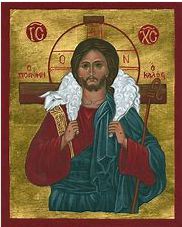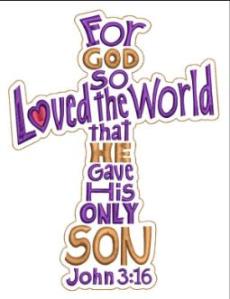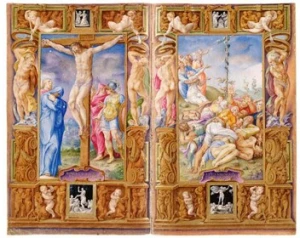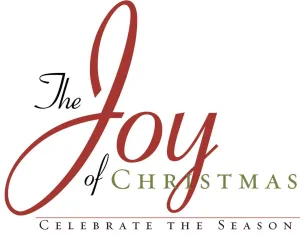John 10:11-18
This Fourth Sunday of Easter is also known as ‘Good Shepherd Sunday’. Throughout the readings and prayers for this occasion, we encounter, time and again, Jesus defined as our shepherd and ourselves as the sheep of his flock.
I was going to preach today exclusively on Jesus as the good shepherd, but in light of recent events affecting our Black brothers and sisters, I feel compelled to speak to those events.
For more than two weeks, all the world waited with bated breath as we watched the trial of one of the policemen accused of murdering George Floyd. Most of us were astounded at the preponderance of prosecution evidence and disgusted at the defense Derek Chauvin’s attorneys presented. Most people were sure that there would be a conviction of Derek Chauvin, his executioner, but because of past experience with white cop/black victim incidents, many of us were afraid the ‘thin blue line’ of defense would prevail. However, this time the legal system returned a valid conviction on, not only one, but all three charges.
But before we could celebrate that justice was delivered in the George Floyd trial, just less than an hour before the verdict came in, 16-year-old Ma’Khia Bryant was shot and killed by a white Columbus policeman. This is the seventh death of Blacks by law enforcement in the last four months!
Then Friday, a deputy killed Andrew Brown Jr., in North Carolina while attempting an arrest.
Please say with me their names:
Miles Jackson . . .
Andre Hill . . .
Casey Goodson, Jr. . .
Adam Toledo . . .
Duante Wright . . .
Ma’Khia Bryant . . .
Andrew Brown, Jr.
This slaughter has got to stop!!
No matter whether George Floyd was a found sheep, or a lost sheep, he was still a child of God, and deserved to be treated as such. But Derek Chauvin saw him as a threat to himself, and maybe others, and mercilessly took his life by kneeling on his neck for over nine minutes. He forgot God’s commandment:
Do unto others as you would have them do unto you. (Luke 6:31)
What he did was not subdue George so that he could not harm the police, but maliciously kept his knee on George’s neck until there was no breath or movement – and then kept it there for another three minutes. He was not lawfully carrying out his duties as a police officer sworn to uphold the law and protect the people of Minneapolis. If you see the video, there was only a blank detached stare in Chauvin’s eyes during that whole nine-plus minutes; with no sense that he realized that George Floyd was another human being.
And for once, in a nation of inequality, the brave jury of twelve people, as well as a number of police, determined that Derek Chauvin had committed a crime and should be punished for it. We all know that this one verdict is not going to correct the horrendous murders of black men and women, but it may be a start. Statistically, 98.3% of all police-involved shootings do not result in indictments, trials, or changes in policy and procedures.[1] We all need to work to bring awareness and remedy to police violence and brutality in our society, whether it comes from police or other people.
After the verdict came in, I imagined in my mind, that George Floyd was cradled in the arms of Jesus, being held in the love and comfort by the Savior of us all, protected from any further harm or grief or pain.
Still, as we breathed a collective sigh of relief Tuesday, our community felt the sting of another police shooting, resulting in a sixteen-year old black teenager dead from four gunshots.
Whether Ma’Khia was a troubled foster child, or this started as a spat with two other girls about a messy house and unmade bed, it came when Ma’Khia wielded a steak knife and was summarily shot by a Columbus police officer. The incident and actions of the police officer are still being investigated, so this is not the time to make presumptions. But nevertheless, another one of our Black sisters is dead at the hand of law enforcement.
It is time to mourn Ma’Khia, along with the others whose lives have been snuffed out by extreme use of lethal force by police, when it is likely that they would not have used such force if the victim had not been a person of color.
And so, I again imagine in my mind, that Ma’Khia Bryant is being cradled in the arms of Jesus, being held in the love and comfort of the Savior of us all, protected from any further harm or grief or pain.
Jesus, the Good Shepherd, said:
“My sheep listen to my voice; I know them, and they follow me. I give them eternal life, and they shall never perish; no one can snatch them out of my hand” (John 10:25–28).
no one can snatch them out of my hand” (John 10:25–28).
That is what a good shepherd does. And that is what Jesus does for each of us – and we are his sheep.
He is, for all of us, the Good Shepherd who laid down His life for us. He searches for us when we’re lost, to save us and to show us the way to eternal life (Luke 19:10).
The Shepherd knows each sheep by name, they know his voice, and they follow him. He protects them. The hardest thing the shepherd has to protect us from is ourselves and our own foolishness.
We tend to be like sheep, consumed with worry and fear, mindlessly following after one another. By not following or listening to the Shepherd’s voice (John 10:27), we can be easily led astray by others to our own destruction.
George Floyd and Ma’Khia Bryant, although they no longer live in this human plane, are Jesus’ sheep, and now live eternally with Him. No one can remove them from the arms of Jesus.
But just like sheep, we generally do not ‘get’ it – that is why Jesus repeats this passage of scripture so often. He says:
-
- He is the Good Shepherd,
- He laid down his life for his sheep,
- And he knows the name of all his sheep,
- His sheep follow him.
And still we do not always ‘get’ it!
If we are going to look at Jesus as the ‘Good’ Shepherd, we must remember that we are the sheep. We all have been lost, but
Jesus comes and gathers us all back into the safety of the flock.
He shows us how to follow him, listen to him, and come back to the safety of his arms. And he also provides an example of how we can be shepherds to those around us. Jesus challenges us to not only follow him, but be the voice and person to lead others to Him. We each can be the sheep that follow him, but also a member of the flock that lead others to Him.
We are all called to be his sheep.
I would like for you to set aside some quiet time this week pondering
“Who is a good shepherd for you and for whom are you a good shepherd?”
I invite you to take these questions with you –
When we listen to Jesus, as sheep listen to the shepherd, how do we respond?
If we do not respond, are we really listening?
Do we hear him when he speaks to us?
Do we listen when we hear him?
How do we respond to the voice of Jesus?
Amen
Delivered to Saint John’s Episcopal Church, Columbus, OH; 25 April 2021
[1] Carlos Watson, “A Verdict for America”, CNN, Washington Post; 24 April 2021













